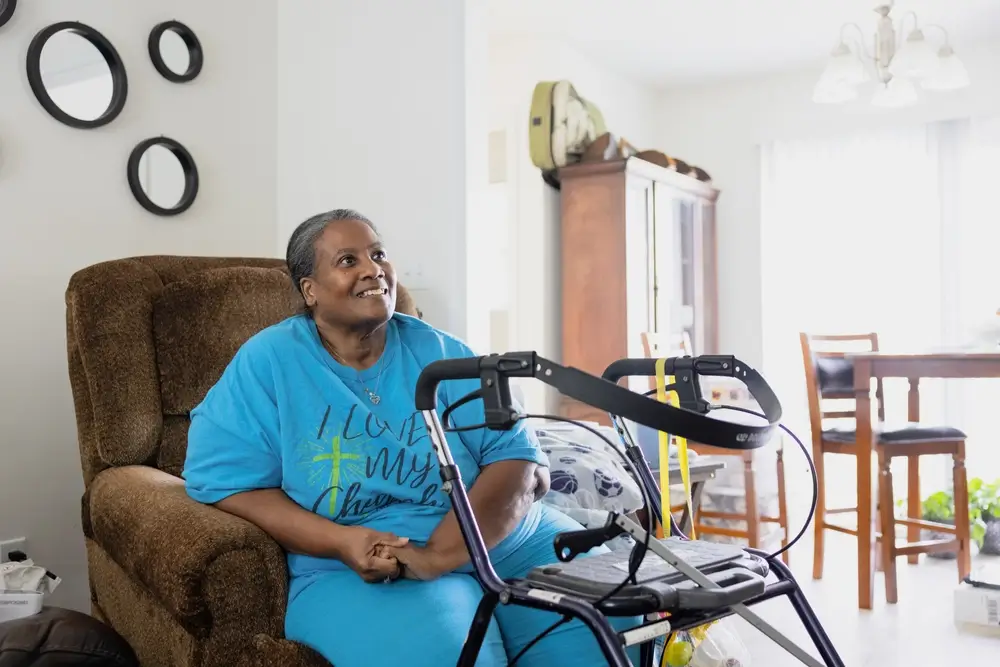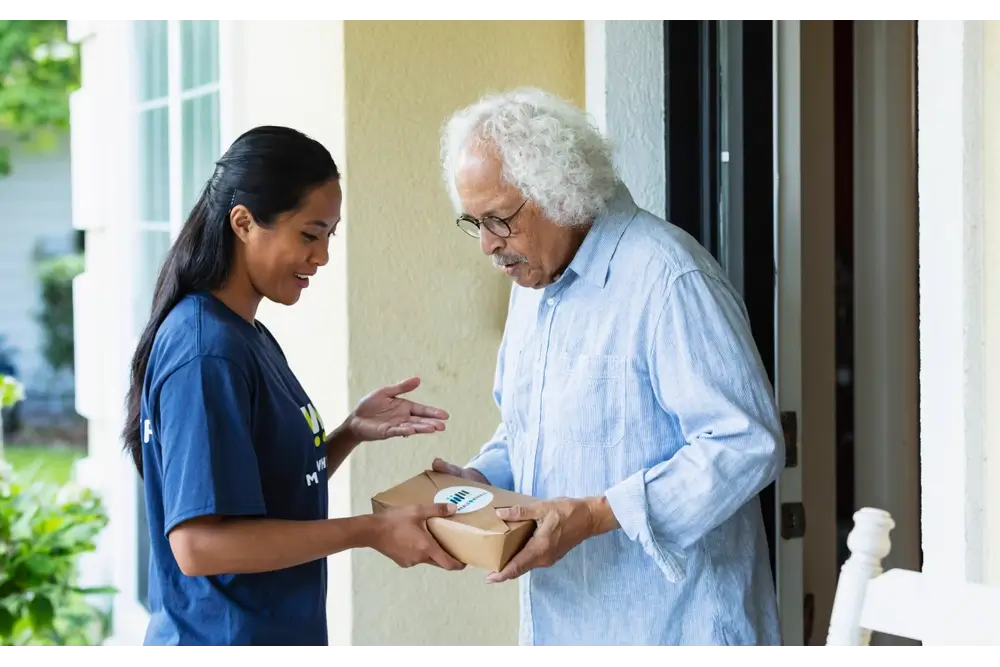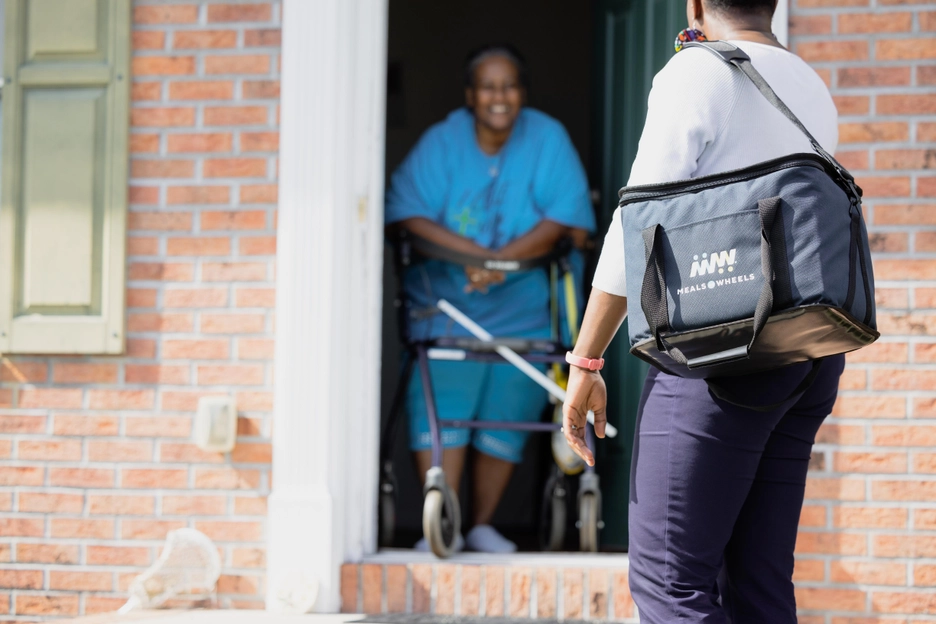Links & Downloads
Food insecurity and malnourishment are major public health concerns in the United States, contributing substantially to hospital readmission incidence:
- 30-day hospital readmission rates are 56% higher in patients who are malnourished.1
- Readmitted malnourished patients have 22% higher hospital costs than those readmitted without malnutrition.2
With this in mind, Meals on Wheels America, with support from The WellSky Foundation, conducted a research project to determine how partnerships between health care and community-based Meals on Wheels providers could help reduce hospital readmission rates and improve health outcomes.

The study monitored seniors discharged from two hospital systems in New York and Florida by conducting wellness checks at the time of discharge to evaluate their need for meal assistance. Those identified as food insecure, at least 60 years of age, had at least one hospitalization in the 30 days prior to the referral and had at leas one of 11 medications were referred for meal delivery services. Two local providers, Meals on Wheels Rockland (New York) and Senior Resources Association (Florida), participated in the study to provide the home-delivered meal intervention. The patients’ health outcomes were then tracked over a 120-day period from the start of services.
Key Findings
The data showed a dramatic 78% decrease in hospitalizations in the 120 days after start of the intervention, from 67 hospitalizations in the 90 days before Meals on Wheels to 15 hospitalizations in the 120-days after start of meal services. Additionally, 98% of participants reported that the meal service aided in their recovery after hospital discharge, and 61% said the service helped reduce their feelings of social isolation during recovery.
The client wanted the agency to know how grateful he is and what a lifesaver these meals are. He said, as a 72-year-old, he is able to get around, but when the inclement weather comes in, it is not as easy. He wanted to express his gratitude for the meal delivery.Participating Meals on Wheels provider
The services also connected participants to food resources. Six in ten (61%) participants said the meal provided by Meals on Wheels was their primary meal of the day.
These findings provide clear, measurable evidence of how Meals on Wheels services can drastically improve older adult health outcomes. Not only were hospitalizations reduced, but the local Meals on Wheels providers also addressed key social determinants of health, like food insecurity and social isolation, which can be overlooked in traditional health care approaches.

Before receiving our meals, her cholesterol was through the roof and she was diabetic. She did not feel well at all. Thanks to her diet change, she no longer has to take cholesterol medications and her doctor now declared her a pre-diabetic. She also lost 15 lbs. She said meals taste delicious and she loves that they are healthy for her.Participating Meals on Wheels provider
The data confirms that collaboration between health care and community organizations plays a critical role in improving senior health outcomes. By strengthening these connections, we can successfully reach senior patients in need through hospitals and secondary referral sources, resulting in better health and overall well-being.
Download Report SnapshotProduced with generous support from

Citations
- Barrett ML, Bailey MK, Owens PL. Non-maternal and Non-neonatal Inpatient Stays in the United States Involving Malnutrition, 2016. ONLINE. August 30, 2018. U.S. Agency for Healthcare Research and Quality. Available: https://hcup-s.ahrq.gov/reports/ataglance/HCUPMalnutritionHospReport_083018.pdf Readmission rates were 14.9 for patients with no malnutrition, 23.2 for those with malnutrition
- ASPEN factsheet

